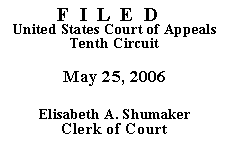

| UNITED STATES OF AMERICA, |
|
| v. | |
| ALDEN YELLOWEAGLE, |
In the Anders brief, defense counsel asserts that there are no viable challenges to the validity of the sentence handed down by the district court. Mr. Yelloweagle received notice of counsel's Anders brief and moved three times to extend the time for providing a response, but never filed one. We have examined the record and conclude that Defendant's appeal is wholly frivolous.
Prior to sentencing, Mr. Yelloweagle objected to what he considered factual errors in the presentence report, which included allegations that suggested his conduct constituted a more serious crime than the one for which he was convicted. However, the district court specifically declined to consider those allegations in calculating the sentence, noting that "[i]f there was a more serious offense in this case, it should have been charged." Thus, the issues to which the Defendant objected prior to sentencing played no role in the outcome of the sentence and do not constitute grounds for appeal.
The district court properly calculated the offense level and criminal history category. The court also considered the applicable Guidelines range, weighed several other relevant sentencing factors in accordance with 18 U.S.C. 3553(a), and arrived at a sentence well within the range recommended by the Guidelines. As such, the court's sentence is entitled to a presumption of reasonableness and should stand. United States v. Kristl, 437 F.3d 1050, 1055 (10th Cir. 2006). The judgment of the United States District Court for the District of Colorado is AFFIRMED.
Entered for the Court,
Michael W. McConnell
Circuit Judge
*.After examining the briefs and appellate record, this panel has determined unanimously that oral argument would not materially assist in the determination of this appeal. See Fed. R. App. P. 34(a)(2); 10th Cir. R. 34.1(G). This case is therefore submitted without oral argument. This order and judgment is not binding precedent, except under the doctrines of law of the case, res judicata, and collateral estoppel. The court generally disfavors the citation of orders and judgments; nevertheless, an order and judgment may be cited under the terms and conditions of 10th Cir. R. 36.3.